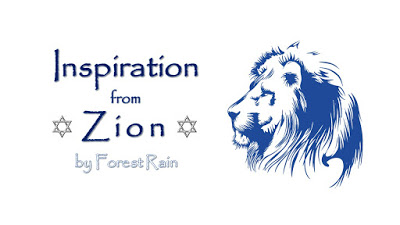
I recently attended a very pretty funeral and was surprised to discover that it felt wrong to me. Living in Israel has changed my perspective on so many things, it turns out that I have developed a new way of seeing funerals too.
A mother of a neighbor died. She had a long good life although her youth was marred by the horrors of the Holocaust that never really left her. Her son arranged her burial in the cemetery where his father had chosen to be buried, a private cemetery where he could have a non-religious funeral.
The Holocaust caused his father to develop a problem with religion.
The funeral was in a private cemetery in a kibbutz near Haifa. The location is beautiful. The graves are spaced out, each with its own unique style.
Unlike the municipal cemeteries run by the Hevra Kadishah who also conduct the funeral ceremony according to Jewish tradition, in the private cemetary you can have any kind of ceremony you want. Some of the people who choose this route are not Jews. Some are Jews who for whatever reason developed a distaste for the religious. Others simply like the freedom of choice and the prettier location.
In general Israelis are horrible at ceremonies. Pageantry takes timing, care of details and “prettifying” reality – Israelis don’t do that.
The first Israeli funeral I went to shocked me to the core. I was in 10th grade and the brother of a girl in my class died in a training accident in the army. The first thing that struck me was the ambulance waiting outside the cemetery in case, in their anguish, any of the relatives collapsed and needed medical care. Then came the gut-wrenching howls from some of the women of the family. Then the father saying Kaddish for his son, crying and asking God why the natural order of the world had been flipped on its head, why he had to say Kaddish for his boy when it was the boy who eventually should have said kaddish for him.
Raw, gut-wrenching pain I will never forget.
I have been to many different funerals since. Too many. The way the families react is different. When and how much they choose to speak is different. The funeral ceremony itself is very spartan. The area where family and friends gather before the funeral is usually an empty, unadorned space, designed to fit large crowds. The body is brought out, wrapped in a shroud. There is no coffin (unless it’s a military funeral).
The body wrapped for burial usually looks much smaller than the person seemed in life.
It is considered a mitzvah to escort the dead to their final resting place. It’s considered a mitzvah to take part in the actual activity of burying the dead. While most of the ceremony consists of prayers for the deceased, at the end of the ceremony a direct request is made from the soul of deceased, asking for forgiveness if any offense was caused, with an explanation that if something was done that disturbed the body, it was done out of respect and in accordance with the traditional methods of preparing the deceased for their final journey. Before leaving attendees place a stone on the grave, symbolizing the permanence of memory.
It’s a utilitarian ceremony with no real thought given to beauty or comfort.
Municipal cemeteries tend to be overcrowded and unattractive, even when they are in beautiful locations (as is Haifa’s cemetery). There is none of the charm of an old cemetery you might find in the USA or Europe. This private cemetery was different. It was tranquil and pleasant.
And it felt wrong.
The place created for families to speak before the ceremony was lovely. It had a podium and pews to sit in. The deceased was brought out in a coffin, covered in a cloth that made it look more like a table than a body prepared for burial.
(The family did choose to have a Rabbi conduct the service so that part was like in standard funerals.)
My internal conflict surprised me. On one hand my natural desire for beauty and peacefulness was answered. The environment provided everything I had previously felt lacking in other funerals I attended. On the other hand, it felt wrong to me.
Israeli funerals aren’t prettified because death isn’t pretty. Other people might have customs designed to make it easier for the bereaved, to distance the living from death – such as not having anything to do with the physical act of burying the deceased or even leaving before the coffin is placed in the ground. Our funerals aren’t designed to disguise the ugliness of grief. The bereaved often have intense emotions clawing at their guts and the funeral is the place to let it out – and however it comes out, it’s ok.
It surprised me how much the coffin disturbed me. It seemed fake, artificial, an unnecessary, unwanted barrier between the deceased and the land that is a living player in the eternal love story of the Nation of Israel. Does that seem strange? It must…
Living in this land has changed me. I will always love the beautiful but I have learned to understand the beauty of truth and truth is often unpleasant, messy and even harsh.
We have lots of ideas, but we need more resources to be even more effective. Please donate today to help get the message out and to help defend Israel.

Leave a Reply